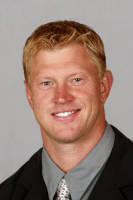Good Nature Quotes

Mark Twain (2012). “Mark Twain at Your Fingertips: A Book of Quotations”, p.190, Courier Corporation
Oliver Goldsmith, Sir James Prior (1837). “The Miscellaneous Works of Oliver Goldsmith, M.B.: Letters from a citizen of the world, to his friend in the East. A familiar introduction to the study of natural history”, p.155
Sydney Smith, Lady Saba (Smith) Holland Holland (1855). “A memoir of the Reverend Sydney Smith”, p.459
All other knowledge is hurtful to him who has not honesty and good-nature
Michel de Montaigne (1800). “Essays, Selected from Montaigne: With a Sketch of the Life of the Author”, p.124
In all the green world nothing feels as good as a woman's good nature.
John Updike (2010). “Rabbit, Run”, p.98, Random House
Good-nature is one of the richest fruits of true Christianity.
Henry Ward Beecher (1871). “Plymouth Pulpit: A Weekly Publication of Sermons Preached by Henry Ward Beecher”, p.410
William Shenstone (1764). “The Works in Verse and Prose, of William Shenstone, Esq: Most of which Were Never Before Printed ...”, p.183
William Shenstone (1794). “Essays on Men and Manners”, p.96
Ralph Waldo Emerson (1971). “The Collected Works of Ralph Waldo Emerson: Society and solitude”, p.240, Harvard University Press
Few are qualified to shine in company, but it is in most men's power to be agreeable.
'Thoughts on Various Subjects' (1706)
There is more of good nature than of good sense at the bottom of most marriages.
Henry David Thoreau (2013). “Delphi Complete Works of Henry David Thoreau (Illustrated)”, p.1138, Delphi Classics
Man selects only for his own good: Nature only for that of the being which she tends.
Charles Darwin, Duncan M. Porter, Frederick Burkhardt (2004). “The Correspondence of Charles Darwin:”, p.228, Cambridge University Press
Alexander Pope (1822). “The Works”, p.388
Henry Ward Beecher (1862). “Eyes and Ears”, p.251
Benjamin Franklin (2004). “Poor Richard's Almanack”, p.173, Barnes & Noble Publishing
Thomas Jefferson (2004). “Light and Liberty: Reflections on the Pursuit of Happiness”, p.7, Modern Library
Ralph Waldo Emerson (1866). “The Complete Works of Ralph Waldo Emerson: Comprising His Essays, Lectures, Poems, and Orations”, p.415
Henry Ward Beecher, William Drysdale (1887). “Proverbs from Plymouth Pulpit”
Benjamin Whichcote, Anthony Tuckney (1753). “Moral and religious aphorisms [collected by J. Jeffery from the papers of B. Whichcote]. Now re-publ., with additions, by S. Salter. To which are added, Eight letters: which passed between dr. Whichcote, and dr. Tuckney”, p.52






